The Conservatives successfully rammed their amended Fair Elections Act through the House of Commons today by a vote of 146 to 123. The election reforms are set to make voting more difficult in 2015, requiring voters show a photo ID containing an address (which is limited in scope). Bill C23, as initially introduced seemed to be an attempt to rig the next election but while some of the more radical changes have been crossed out, the alarm bells ring at the nature of the amended legislation and the motives behind it.
The Conservatives’ Fair Elections Act defies reason and defies advice from electoral experts. The only people supporting Bill 23 are a small number of Conservative insiders whom revolve around the increasingly secluded world of Democratic Reform Minister Pierre Poilievre and Prime Minister Stephen Harper. With such an outstanding rejection to such illogical policy, one must wonder what motive lies behind the stubborn push to get it passed.
A majority of Canadians (62% according to a recent Angus Reid poll) rightfully believe the recent Fair Elections Act proposal shows “the Conservative government is motivated politically and dislikes Elections Canada.”
For a government that touted its record on public safety, this budget shows that its priority is anything but. Instead of cutting the bureaucrats they added when elected in 2006, the Conservatives took a direct assault on services Canadians need.
On today’s Power and Politics, Dean Del Mastro was again put into the hot seat as he was introduced to the CBC investigation that found links between voters who got robocalls and their response to Conservative recruiters.
The Conservatives continue to play the blame game rather than look into allegations of voter suppression and voter fraud as more people take to the streets in what can be described as a loss of confidence in our electoral system.
A recent poll suggests that the Liberals and NDP aren’t the only ones who want an inquiry. The matter has awoken Canadians from sea to sea to sea and 75% of them want an inquiry according to a poll conducted by Ipsos Reid for Postmedia and Global News.
There is no greater sign of non-confidence and misrepresented election results than a series of protests that have broken out across the country. If people believed and voted for a Conservative government fair and square, this would not be happening.
Earlier today, it was reported that 29 ridings and counting were effected by Robocalls in the last election. An updated count pits 34 as the cumulative total among the Liberals and NDP, accounting for 11% of the total seats in the House of Commons.

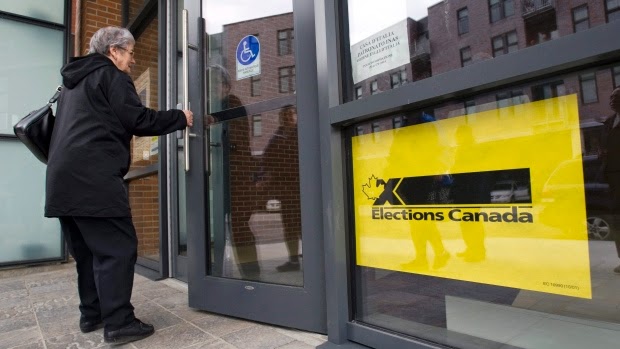
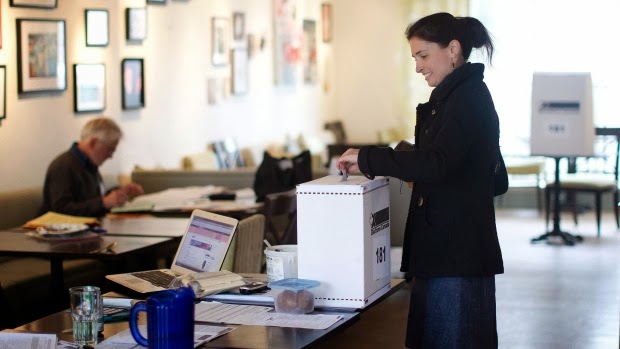
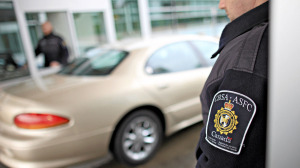
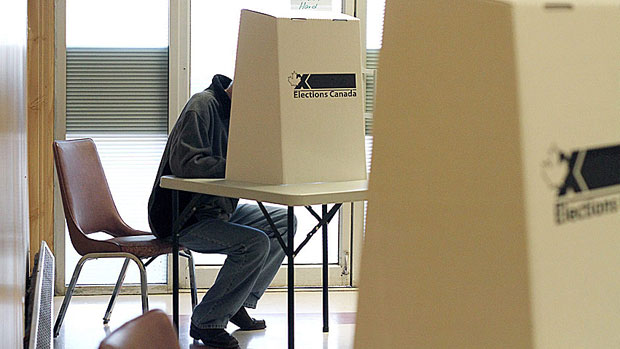
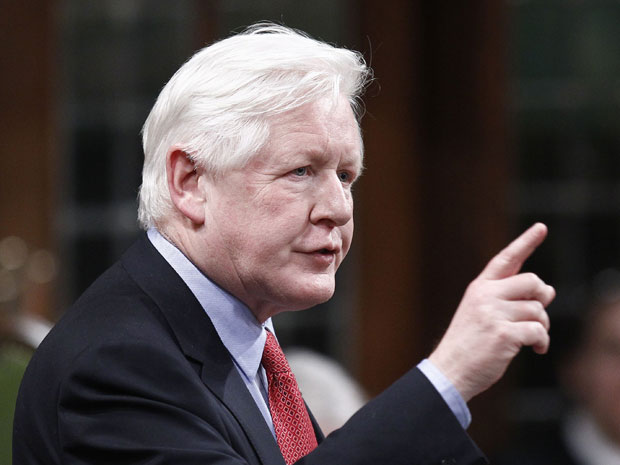
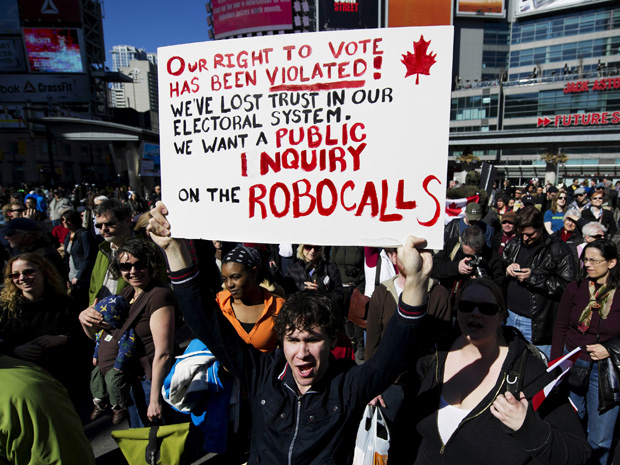
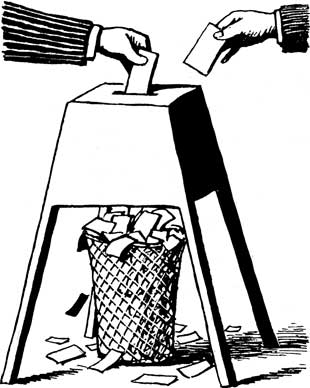
 Share articles about Electoral System
Share articles about Electoral System